The India-Pakistan saga at the SCO foreign ministers' meeting: The China factor
Pundits hoping for a sign of detente between India and Pakistan at the Shanghai Cooperation Organisation (SCO) foreign ministers' meeting in Goa recently would have been disappointed. It is in Pakistan's interest to keep relations with India testy leading up to its elections, and China's support may just give it the ammunition it needs.
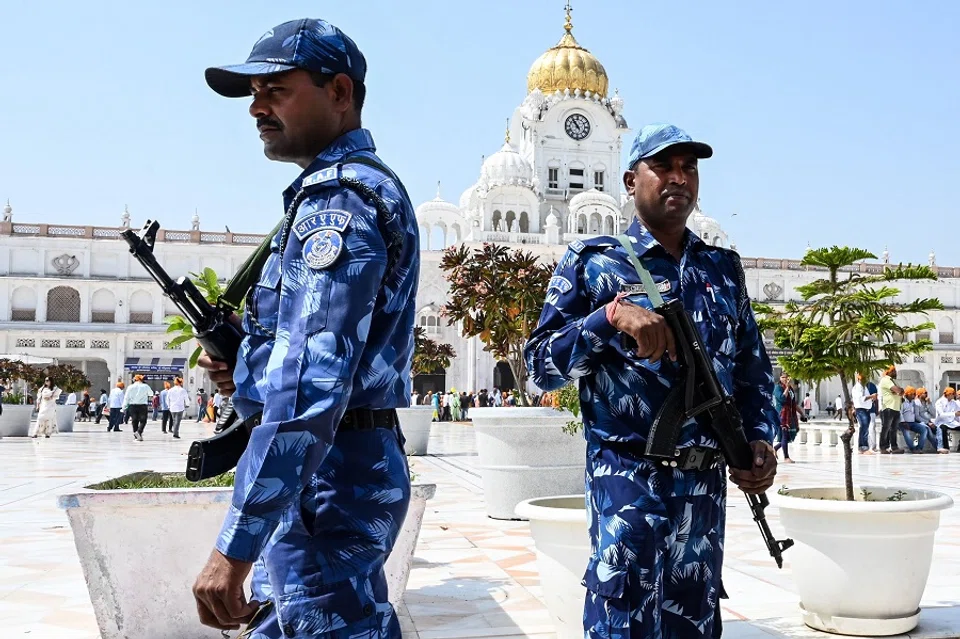
If there was a hotspot in South Asian geopolitics in the last few weeks, it was the Shanghai Cooperation Organisation (SCO) Council of Foreign Ministers Meeting on 4-5 May in Goa, India, where a handshake between the foreign ministers of India and Pakistan was much anticipated. Despite media speculations and the camera gaze, the handshake did not happen, indicating a widening freeze between the two countries.
It has been 12 years since Pakistan's foreign minister visited India. Still, a lack of diplomatic engagement and willingness to speak to each other has closed all communication channels, including the backchannel/Track II communications between India and Pakistan. Recently, Pakistani Foreign Minister Bilawal Zardari Bhutto led personal attacks against the Indian Prime Minister Narendra Modi at the United Nations, further putting bilateral ties on a new low.
Low expectations
For India, any channel of communication with Pakistan will be effective only when Pakistan destroys its homegrown terror industry. Much to India's expectations, Pakistani Foreign Minister Bhutto, a scion of Pakistan's most famous political family, blamed India for the freeze. In India's view, Pakistan has violated all the agreed peace agreements, including the border ceasefire.
Amid mounting tensions, no headway was made in advancing bilateral ties at the SCO foreign ministers' meeting in India. Bhutto's visit to India was followed by a terror attack in India's Jammu and Kashmir by the People's Anti-Fascist Front (PAFF), supported by a Pakistan-based terror outfit Jaish-e-Mohammed.
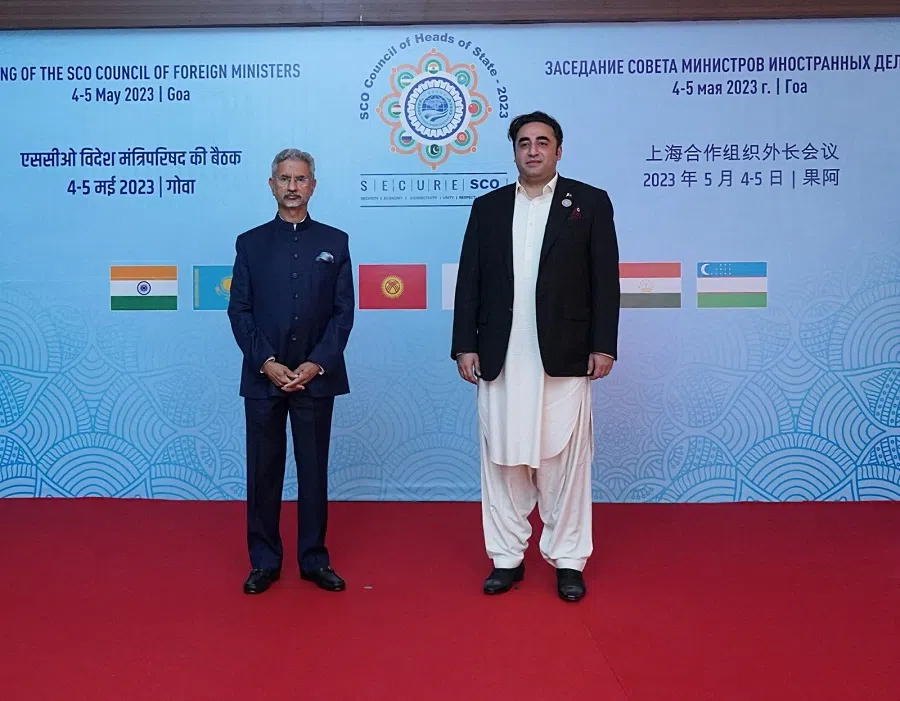
Five Indian soldiers lost their lives during the anti-terror operations, casting a shadow on Bhutto's visit to India, especially when Bhutto's arrival to India was much-watched due to the deadlock between India and Pakistan since the 26/11 Mumbai terror attacks where Pakistani terrorists killed more than 50 people and left hundreds injured (including foreigners). The attack was carried out by the Pakistan-based militant group Lashkar-e-Taiba (LeT), whose mastermind remains in Pakistan.
Pakistan's failure to act against the terror groups indicates a deep-rooted state involvement in training and sheltering the most wanted terrorists in the world who continue to run the terror industry from Pakistani soil.
Facilitator or victim of terrorism?
India, in all its multilateral engagements, including the United Nations (UN), Group of Twenty (G20), Association of Southeast Asian Nations (ASEAN), and South Asian Association for Regional Cooperation (SAARC), has categorically condemned terrorism.
SAARC, a regional organisation founded in 1985 to promote regional cooperation in South Asia, remains defunct due to Pakistani state support for terror organisations executing cross-border terrorism against India. In the last 38 years of its existence, only 17 annual summits have taken place, with the last one being in 2014 in Kathmandu, Nepal.
As Pakistan continues to be a haven for the terror groups/individuals operating against India, including Hafiz Saeed, chief of the LeT and mastermind of the 26/11 attacks in Mumbai, India sees no future in dealing with Pakistan. Pakistan's failure to act against the terror groups indicates a deep-rooted state involvement in training and sheltering the most wanted terrorists in the world who continue to run the terror industry from Pakistani soil.
At the SCO Council of Foreign Ministers Meeting in Goa, Indian Foreign Minister S Jaishankar, in his address, added that "while the world was engaged in facing Covid-19 and its consequences, the menace of terrorism continues unabated and taking our eyes off would be detrimental to our [India's] security interests. We [India] firmly believe that there can be no justification for terrorism, and it must be stopped in all its forms and manifestations, including cross-border terrorism. The channel of finances for terrorist activities must be seized and blocked without distinction."
For India, there could not have been a better platform to take up the issue of terrorism as it is one of the principal objectives of the SCO's formation and foundation.
While the list is too long, the Pakistani state presents itself as the victim of terrorism.
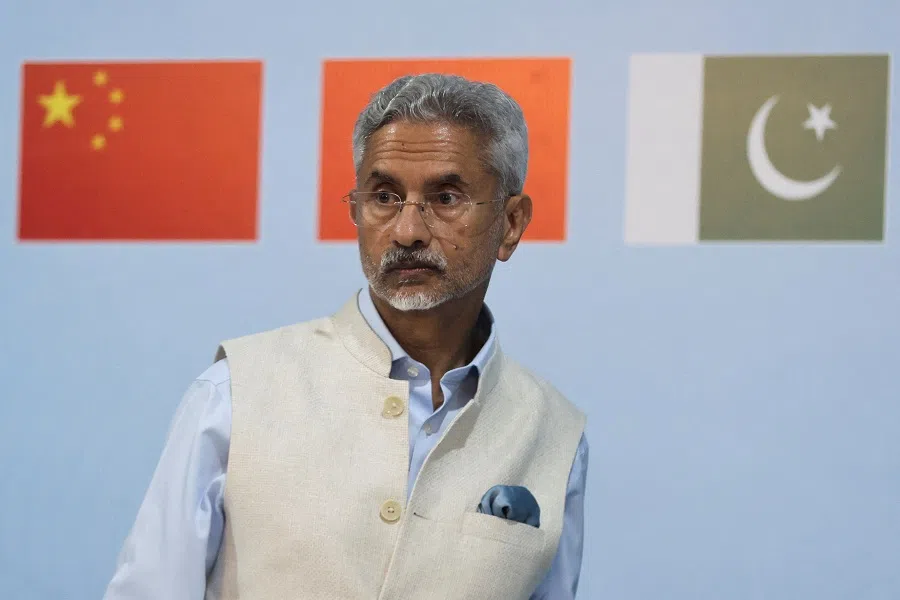
Unfortunately, despite India's continuous fight against terrorism and efforts to bring it on the multilateral platform, Pakistan has failed to act against the terror industry. Pakistan's track record against its homegrown terror industry speaks for itself.
The mastermind of the 9/11 attacks - Osama Bin Laden - was found and killed by the American forces in Pakistan's Abbottabad. Similarly, Dawood Ibrahim, wanted for the 1993 Mumbai blasts, and Paramjit Panjawar, the Khalistan separatist group commando, have lived in Pakistan and executed operations against India.
While the list is too long, the Pakistani state presents itself as the victim of terrorism. Pakistani Foreign Minister Bhutto, in his remarks, added: "Terrorism continues to threaten global security. Let's not get caught up in weaponising terrorism for diplomatic point scoring."
Bhutto suggested that "we must stop conflating non-state actors with state actors. Condemn all forms of terrorism, including state-sponsored terrorism. Given that many SCO members confront the menace of terrorism, often from the same terrorist groups, the SCO RATS [Regional Anti-Terrorist Structure] needs to be further strengthened to effectively address the growing threats to peace and security in the SCO space."
While Bilawal Bhutto may have advocated for joint efforts to deal with terrorism, his sly dig at India for making terrorism the cardinal agenda on the bilateral and multilateral platforms indicates the major role played by the deep state - the Pakistan Army and the Inter-Services Intelligence (ISI) which runs the domestic and foreign affairs of Pakistan - which results in clashes with India.
When terrorism brings benefits
Pakistan had agreed upon a ceasefire agreement with India in 2021. Two years after the ceasefire, the number of ceasefire violations has been lower, yet cross-border terrorism continues to find its roots in Pakistan. This strategy has often been termed as "two steps forward, one step back" in a strategy of deception by Pakistan.
In a recent Foreign Policy piece, former ambassador of Pakistan to the US Hussain Haqqani wrote, "Pakistan would do better to abandon its 'two steps forward, one step back' approach to domestic terrorism. Defining some jihadi groups as Pakistan's allies in regional conflicts - against India's control of Jammu and Kashmir, for example - has generated sympathy for militants, which helps even more extreme groups evade scrutiny..."
Pakistan will be holding general elections this/next year and looking at a deep-rooted anti-India rhetoric driven by Islamic nationalism, the ruling Pakistan Peoples Party (PPP) will not risk its chances of making a comeback.
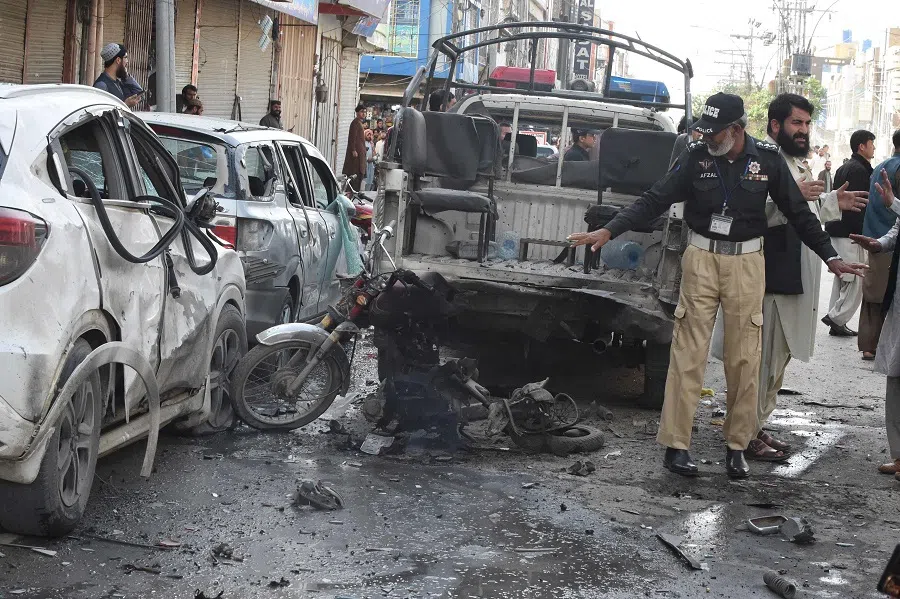
While the deep state in Pakistan has benefited from non-state actors in waging war against India, the Pakistan Army's ignorance towards terror attacks within Pakistan showcases the weakening of the democratic institutions in Pakistan. In this regard, Haqqani further suggests: "Before Pakistan's militants take advantage of ongoing political chaos and economic adversity to orchestrate a full-blown insurgency, leaders in Islamabad must end years of uncertainty about their policy on terrorism."
Did Pakistan's foreign minister intend to initiate dialogue with India on the sidelines of the SCO meeting? An objective answer may be a big "no" as the Pakistani deep state is unwilling to lead a peace accord with India as it would severely undermine the Pakistan Army's role in Pakistan's domestic, foreign and security policies.
Second, Pakistan will be holding general elections this/next year and looking at a deep-rooted anti-India rhetoric driven by Islamic nationalism, the ruling Pakistan Peoples Party (PPP) will not risk its chances of making a comeback. Therefore, the current ties with India suit the political needs of the PPP.
Third, while Pakistan would want to internationalise the Kashmir issue against India's official position of treating it as a bilateral issue, India's push for demolishing the terror industry will weaken the Pakistan Army and ISI-led deep state in all forms.
The China factor in India-Pakistan tensions
While no resolution in India-Pakistan is likely to be seen in the near future, understanding the China factor in Pakistan-India ties helps understand the complexities involved in the India-Pakistan standoff.
After Pakistan was born in 1947, due to the political instability and its low international presence, it was an unlikely bet for China in the 1950s. After the Sino-India War in 1962, China saw Pakistan as a pressure point against India due to their existing dispute over Kashmir. However, to counter India's rising arsenal and defence capabilities between the 1970s and late 1990s, China helped Pakistan to develop nuclear capabilities in the backdrop of India's nuclear tests in 1998.
"The enemy of my enemy is my friend" - this infamous strategy helped China court Pakistan.
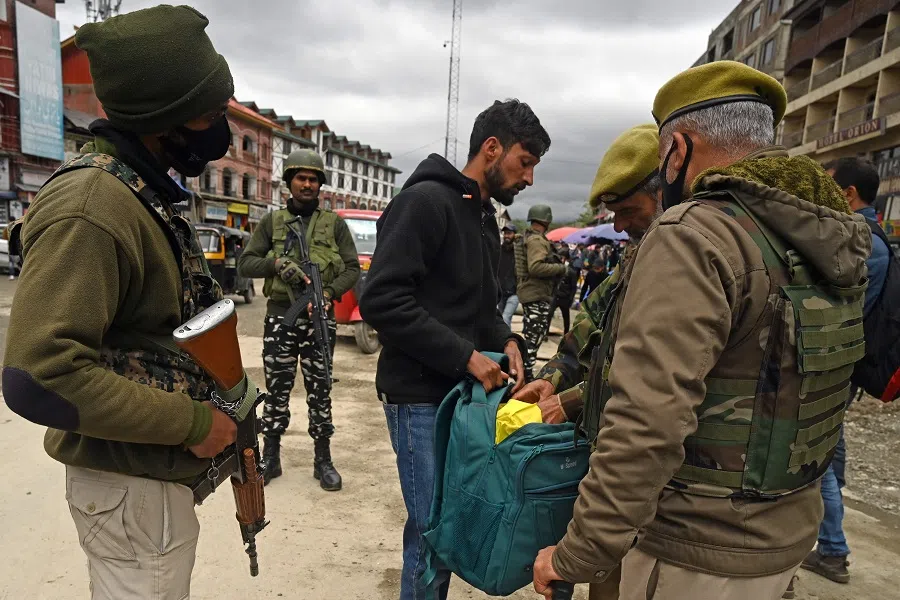
In the mid-2000s, India shifted its focus from Russia to the US, culminating in the agreement for "Cooperation between the Government of India and the Government of the United States of America concerning Peaceful Uses of Nuclear Energy". It was a significant shift in India's approach to befriending the US.
"The enemy of my enemy is my friend" - this infamous strategy helped China court Pakistan. The China-Pakistan "strategic cooperation" has indeed been shaped to create two-front pressure on India, especially on its border with China and Pakistan. Therefore, India was the mainstay of China-Pakistan strategic cooperation at first.
Second, the China-Pakistan Economic Corridor (CPEC) passing through the Pakistan Occupied Kashmir (POK) continues to be a disputed territory between India and Pakistan. India strongly objected to the CPEC, citing gross violation of India's territorial integrity.
In a recent press briefing at the SCO Council of Foreign Ministers Meeting, India's foreign minister reaffirmed India's stand on CPEC, stating: "Connectivity is good for progress, but [it] cannot violate the territorial integrity and sovereignty of states." The CPEC element in China's overall Belt and Road Initiative (BRI) has kept India doubtful of Beijing's overall intentions in the region.
While the CPEC has contributed to widening the freeze between Delhi and Islamabad, Pakistan leaves no stone unturned in praising it. During his address at the SCO meeting, the Pakistani foreign minister referred to the CPEC, offering "all countries invested in the commonality of the future of this region to take the journey further and connect the dots towards full regional economic integration". Contrary to China and Pakistan celebrating CPEC and treating it as a critical component in their bilateral cooperation, India has strong reasons to oppose it.
Deepening China-Pakistan defence and overall strategic and economic ties have also influenced Pakistan to make compromises on its advocacy of safeguarding Islam worldwide.
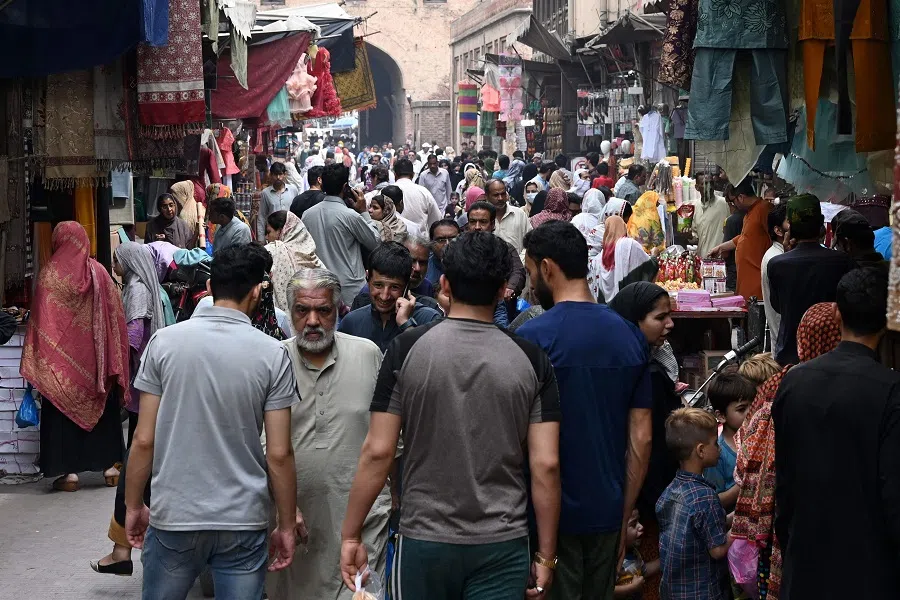
Third, China's veto at the UN Security Council (UNSC) makes it difficult for India and the US - victims of the biggest terror acts - to list several terrorists at the UN. In June 2022, India and the US had jointly proposed to list Abdul Rehman Makki - a Pakistan-based terrorist and brother-in-law of the mastermind of the 26/11 attacks in Mumbai - as a "global terrorist". China blocked the proposal and only lifted it in January this year, allowing the UN to blacklist Makki. On previous occasions, too, China has come to the rescue of Pakistan, including by blocking for years the listing of Masood Azhar - the mastermind of the Pathankot attack in India - at the UNSC.
While the SCO spirit fundamentally revolves around counterterrorism, the strategic nexus between Pakistan and China creates potholes in the global fight against terrorism. Deepening China-Pakistan defence and overall strategic and economic ties have also influenced Pakistan to make compromises on its advocacy of safeguarding Islam worldwide. For instance, Pakistan has maintained a strategic silence on the mistreatment of Uighur Muslims in the Muslim-majority Xinjiang province. Therefore, China and Pakistan coming together on the issue of terrorism needs to be seen through the prism of their larger strategic interest-based cooperation.
Strengthening China-Afghanistan-Pakistan ties
Fourth, an increasing Chinese role in Afghanistan with Pakistan by its side changes the regional strategic dynamics, including India's role in Afghanistan. China looks at Afghanistan from economic and geostrategic interests - challenging US supremacy and deepening China's strategic depth in Afghanistan. The West-led sanctions against the interim Taliban government in Afghanistan provide an opportune time for China to expand its regional role as well as rescue the Taliban from global isolation.
By befriending the Taliban, China is filling the strategic vacuum driven by its economic and strategic interests. At the same time, it creates a problematic situation for the West, including the US, because a strategic bargain with China will eventually empower the Taliban and Pakistan to let the terror industries grow.
... extending CPEC to Afghanistan will see China's more profound presence in Afghanistan on the security front, which it plans to formalise through bilateral and Global Security Initiative.
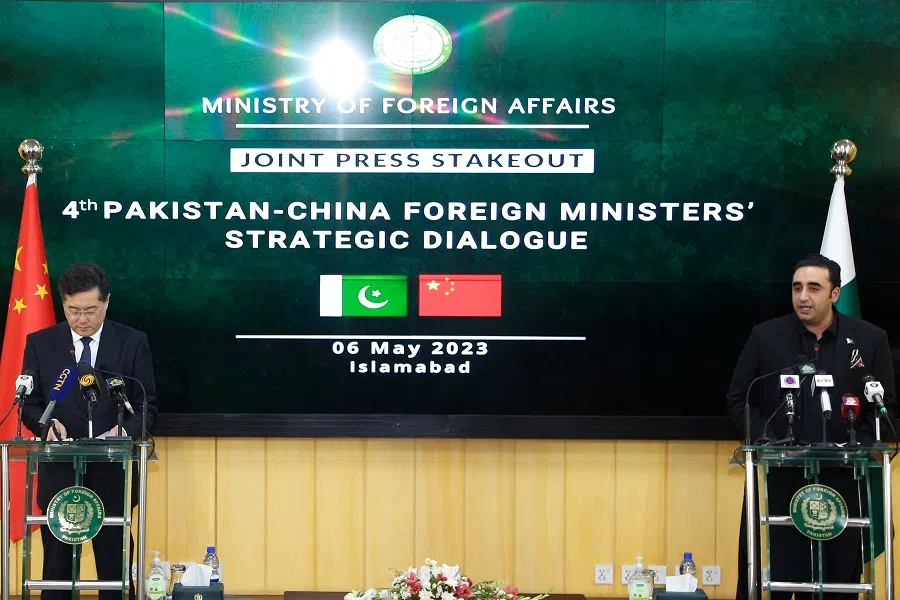
Soon after the SCO meeting in India, Qin Gang, China's foreign minister, travelled to Pakistan for the 4th Pakistan-China Foreign Ministers' Strategic Dialogue. While Pakistan reiterated its commitment to the "one China" policy and hailed China as an "All-Weather Strategic Cooperative Partners", China referred to Jammu and Kashmir during the visit as a favour to Pakistan in return.
The critical part of Qin Gang's visit to Pakistan included holding the China-Afghanistan-Pakistan Foreign Ministers' Dialogue on 7 May, where the three parties agreed to expand CPEC to Afghanistan. With Afghanistan joining the CPEC, China will have new trade routes and markets. Afghanistan is also home to natural resources like copper, lithium and gold, which China has been eyeing for decades. Most importantly, extending CPEC to Afghanistan will see China's more profound presence in Afghanistan on the security front, which it plans to formalise through bilateral and Global Security Initiative.
Way forward
Tensions between India and Pakistan are complicated and have longstanding political and historical roots. However, dialogue and diplomacy can be crucial steps in easing tensions.
To address their differences and search for common ground, including working to eradicate the menace of terrorism from Pakistani soil, the top priorities on India's side would be to undertake backchannel negotiations with the army leadership in Pakistan. Track II diplomacy can further help to make a fresh beginning, but that will only be possible when Pakistan addresses its internal affairs and re-establish a foreign policy consensus.
Meanwhile, an increasing presence of China in regional affairs will complicate the India-Pakistan dialogue, considering an unstable Pakistan favours Chinese objectives in the region, including Afghanistan.
Related: Pakistan, Russia and China: A new tripartite geopolitical centre of gravity in South Asia? | Pakistan stands to gain from Afghanistan turmoil? | Afghanistan in the calculations of India, Pakistan and China: Is there common ground among rivals and allies? | Overcoming power imbalances and policy clashes: The quest for a peaceful China-India future





